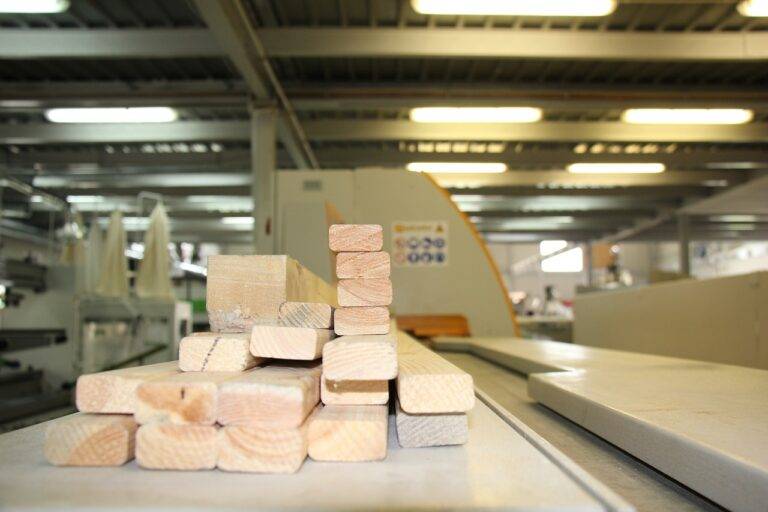The Impact of Smart Manufacturing on Car Production: Betbhai9.com whatsapp number, Playexch app, Lotus 365 login
betbhai9.com whatsapp number, playexch app, lotus 365 login: The Impact of Smart Manufacturing on Car Production
In recent years, smart manufacturing has revolutionized the way cars are produced, leading to increased efficiency, enhanced quality, and reduced costs. This tech-driven approach to manufacturing involves the use of advanced technologies such as the Internet of Things (IoT), artificial intelligence (AI), and robotics to streamline the production process. As a result, car manufacturers are able to produce vehicles at a faster pace while ensuring consistency and precision in every step of the manufacturing process.
The integration of smart manufacturing into car production has had a significant impact on the automotive industry as a whole. From design and prototyping to assembly and quality control, smart manufacturing technologies have reshaped every aspect of the car manufacturing process. Let’s take a closer look at the key ways in which smart manufacturing has transformed the production of cars.
1. Improved Efficiency in Production Lines
One of the most significant benefits of smart manufacturing in car production is the improved efficiency of production lines. By utilizing IoT sensors and AI-powered analytics, manufacturers can monitor and optimize every aspect of the production process in real-time. This proactive approach enables manufacturers to identify and address potential bottlenecks, reduce downtime, and increase overall productivity.
2. Enhanced Quality Control
Smart manufacturing technologies have also revolutionized quality control processes in car production. By implementing sensors and AI algorithms, manufacturers can detect and correct defects early in the production process, ensuring that only high-quality vehicles make it to the market. This not only improves customer satisfaction but also helps manufacturers save time and resources by minimizing rework and defects.
3. Customization and Personalization
Smart manufacturing has made it easier for car manufacturers to offer customization and personalization options to consumers. By leveraging advanced technologies, manufacturers can easily modify and adapt production lines to accommodate different customer preferences and specifications. This level of flexibility allows manufacturers to cater to a wider range of customer demands while maintaining efficiency in production.
4. Sustainable Manufacturing Practices
With the increasing focus on sustainability and environmental conservation, car manufacturers are turning to smart manufacturing technologies to reduce their carbon footprint. By optimizing energy usage, reducing waste, and implementing eco-friendly practices, smart manufacturing has made it possible for manufacturers to produce cars in a more sustainable and environmentally friendly manner.
5. Supply Chain Optimization
Smart manufacturing has also played a crucial role in optimizing supply chain management in the automotive industry. By integrating IoT devices and AI-powered analytics into the supply chain, manufacturers can track and monitor inventory levels, forecast demand, and improve logistics efficiency. This enhanced visibility and control over the supply chain have helped manufacturers reduce costs, streamline operations, and improve overall performance.
6. Worker Safety and Productivity
Another significant impact of smart manufacturing on car production is the improvement in worker safety and productivity. By automating repetitive and dangerous tasks, manufacturers can reduce the risk of workplace accidents and injuries. Additionally, smart manufacturing technologies such as collaborative robots (cobots) can work alongside human workers to enhance productivity and efficiency on the production line.
In conclusion, smart manufacturing has revolutionized the production of cars, bringing about significant improvements in efficiency, quality, sustainability, and supply chain management. As car manufacturers continue to adopt and integrate advanced technologies into their production processes, we can expect to see even more innovation and transformation in the automotive industry in the years to come.
FAQs
1. What is smart manufacturing?
Smart manufacturing refers to the use of advanced technologies such as IoT, AI, and robotics to optimize and automate manufacturing processes. These technologies enable manufacturers to improve efficiency, quality, and sustainability in production.
2. How has smart manufacturing impacted car production?
Smart manufacturing has revolutionized car production by improving efficiency in production lines, enhancing quality control, enabling customization and personalization, promoting sustainable manufacturing practices, optimizing supply chain management, and enhancing worker safety and productivity.
3. What are some examples of smart manufacturing technologies used in car production?
Some examples of smart manufacturing technologies used in car production include IoT sensors, AI algorithms, robotics, collaborative robots (cobots), and advanced analytics tools.
4. How can smart manufacturing benefit the automotive industry?
Smart manufacturing can benefit the automotive industry by reducing costs, improving quality, increasing productivity, enabling customization, promoting sustainability, and enhancing supply chain management.
5. What does the future hold for smart manufacturing in car production?
The future of smart manufacturing in car production looks promising, with continued advancements in technology leading to further improvements in efficiency, quality, and sustainability. As manufacturers continue to adopt and integrate smart manufacturing technologies, we can expect to see even more innovation and transformation in the automotive industry.







